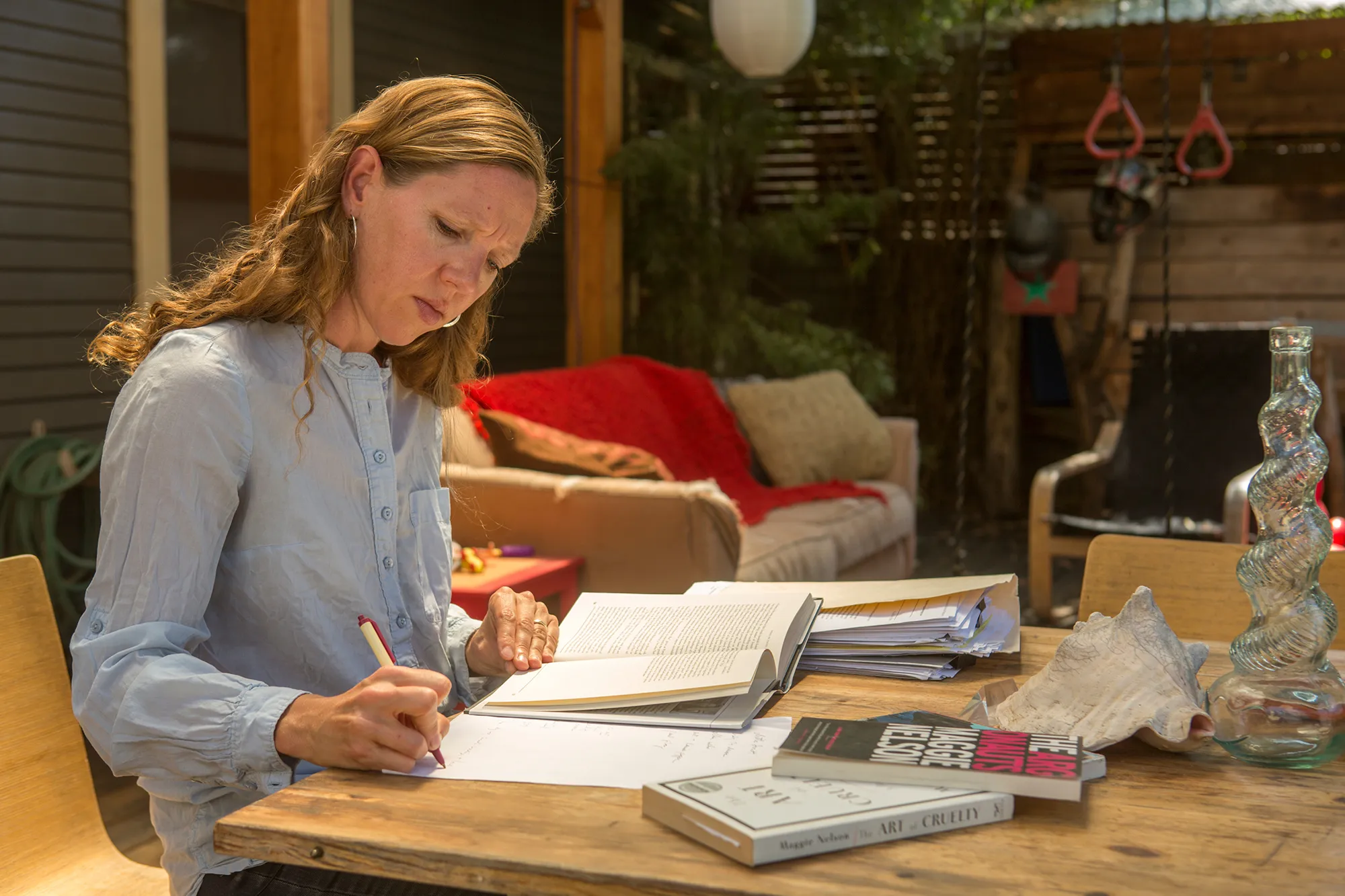In the hands of Maggie Nelson, the creation of art precipitates the destruction of categories. The MacArthur grant awardee and USC professor visited Stanford on January 28 as the second Lane Lecturer of the academic year. Eavan Boland, director of the Creative Writing Program, introduced Nelson as an author who “challenges orthodoxies” and “displays her own distrust of categories” in her writing. Nelson is best known for her books “Bluets” and “The Argonauts.” The former describes, in 240 prose-poems, the color blue and how it reflects her personal stories of pain and suffering. The latter, a memoir, revolves around love, gender queerness, motherhood and family, melding these issues together in a deeply personal narrative.
At her reading, however, she introduced excerpts from an upcoming novel she had never before read to the public. In three words, she summarized what she had chosen to tackle with this project. “It’s about freedom,” she said, and went on to explain, “There’s political freedom on one hand, and then there’s spiritual freedom… metaphysical freedom, and this book is about how they kind of intersect.”
The book explores freedom through an environmental and personal lens, interweaving James Baldwin and Annie Dillard quotes with personal anecdotes, especially her interactions with her son. While her writing clearly reflects painstaking research and reflection, it also feels, to an extent, belabored, as though the four-plus years she had spent crafting the piece were audible in her reading, as though the voice we had grown used to in “Bluets” and “The Argonauts” had suddenly become mired in quotes and formalism.
The excerpts Nelson chose to share included both narrative and expository writing, the former being—perhaps due to the solely aural experience of a reading—much easier to digest. Though her decision to share a work-in-progress with a sizeable audience is admirable, the nonfiction aspect of her work had much more potential for impact. Due to a combination of its complexity and lack of context, several portions threatened to fall to glazed-over eyes and uncomprehending ears. In my opinion, Nelson’s upcoming book may have benefited more from being read than being heard.
To say the least, it was a curveball thrown at the audience, though not necessarily a bad one. Sophomore Lily Nilipour comments, “I was pretty surprised, but I thought it was actually really interesting just because how varied her literary interests are.”
Perhaps part of the surprise lies in the style of writing. Nilipour, who had recently read “Bluets,” described Nelson’s craft as “very elusive and cyclical in its language.” And even Nelson herself, noting the difference in style, reflected, “This book is different because it’s sense-making prose, and I started out as a poet.”
However, this upcoming book is not Nelson’s first undiluted nonfiction work. Her 2011 book “The Art of Cruelty” examined and critiqued the prevalence of violence in modern art and media. It seems she possesses a knack for choosing original lenses with which to view and integrate vast, timely topics. “I really wasn’t expecting the majority of it to be about climate change, but… the way she interwove so many theories and ideas of self, femininity and a bunch of other things with climate change is something that I really hadn’t thought of before,” says Nilipour.
Nelson indeed specializes in finding connections between the seemingly estranged, delving deep into topics, such as climate change, about which she knew quite little before she embarked on the journey of writing the book.
“In each project I give myself permission to do something I haven’t done before,” says Nelson. Perhaps, as she shatters the categories built by society, she is also shattering personal boundaries, allowing for her constant evolution as a writer and thinker.
Contact Angela Yang at ayang22 ‘at’ stanford.edu.
